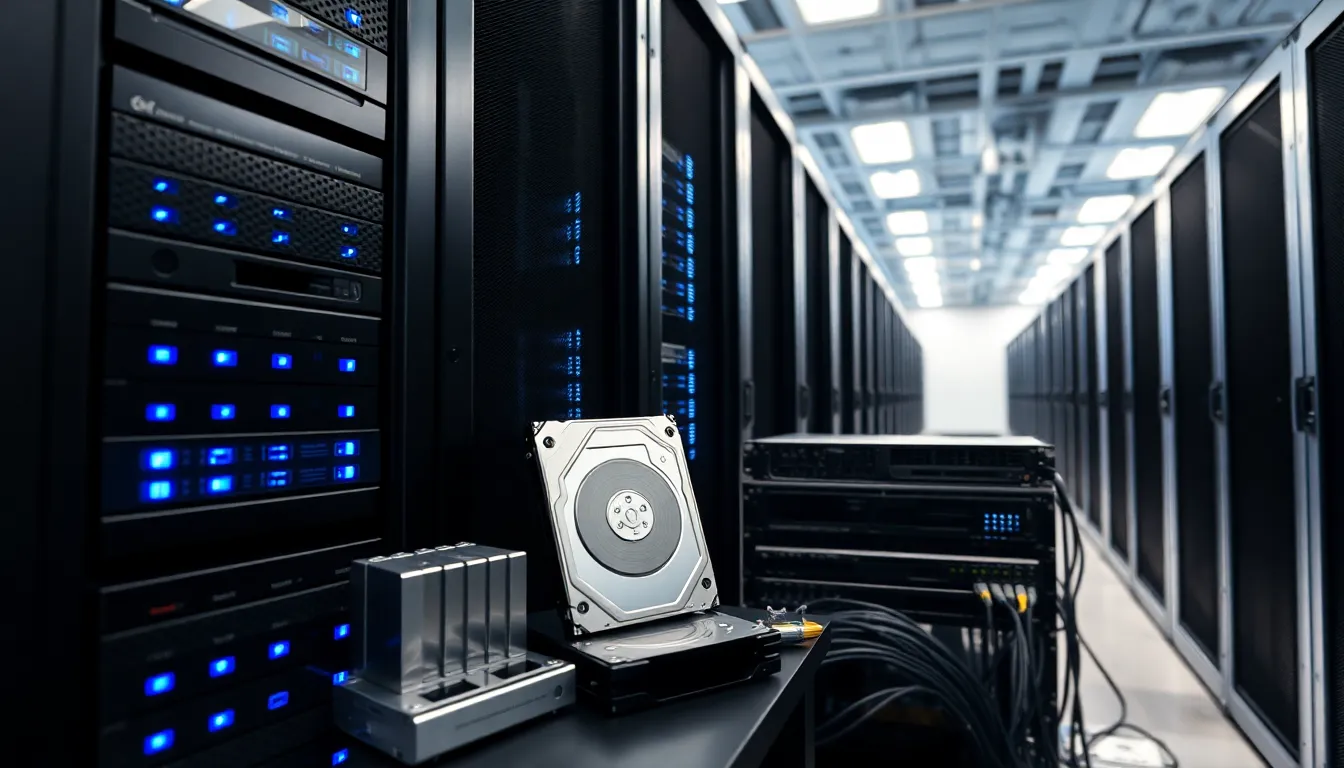In the fast-paced world of web development, understanding hardware is crucial. WebBizMagnet.com emerges as a leading platform that offers insights into the intricate relationship between hardware and web hosting. This article delves into the types of hardware necessary for effective web hosting, how to choose the right options, and what performance considerations to keep in mind. Also, we will explore the future trends shaping the landscape of web hosting hardware, ensuring that businesses can stay ahead of the curve.
Table of Contents
ToggleUnderstanding Hardware in Web Development

Hardware forms the backbone of web hosting, providing the necessary infrastructure that ensures websites operate smoothly and efficiently. At its core, hardware comprises the physical components of a computer system, including servers, storage devices, network equipment, and more. Understanding the types of hardware and their functionality is vital for web developers and businesses alike.
Web hosting hardware can be broken down into several key components:
- Servers: Servers are specialized computers designed to manage network resources and load web pages. They handle requests from client browsers, process data, and serve content.
- Networking Equipment: Routers, switches, and firewalls work in tandem to help communication between servers and end-users, ensuring reliable data transmission.
- Storage Devices: Hard drives (HDDs) and solid-state drives (SSDs) store website data and applications. The choice between these affects performance and speed significantly.
- Backup Hardware: For data integrity and security, organizations must also invest in backup systems, including external drives and cloud solutions.
Types of Hardware Used for Web Hosting
When it comes to web hosting, not all hardware is created equal. Several types are commonly used, each serving distinct purposes and catering to different needs:
- Dedicated Servers: These are physical servers dedicated entirely to a single client, offering maximum performance and security. Ideal for large enterprises with heavy traffic.
- Virtual Private Servers (VPS): VPS uses virtualization to divide a physical server into multiple virtual servers. This option provides flexibility and is suitable for medium-sized websites.
- Cloud Servers: Cloud hosting utilizes multiple interconnected servers to host websites. This type of hosting is scalable and reliable since it can handle traffic spikes more effectively than traditional hosting.
- Shared Hosting: This is a cost-effective solution where multiple websites share a single server’s resources. While affordable, it may lead to performance issues during high-traffic periods.
- Managed Hosting: In this arrangement, a hosting provider takes care of the technical aspects, including hardware management and software updates, allowing businesses to focus on their core activities.
Choosing the Right Hardware for Your Needs
Selecting the right hardware for web hosting can significantly impact not just performance, but also cost and scalability. Here are a few essential steps to consider:
- Assess Your Requirements: Determine the specific needs of your website, including the expected traffic, type of content, and database requirements. If you anticipate high traffic, consider dedicated or cloud servers.
- Evaluate Performance: Analyze performance metrics such as CPU speed, RAM capacity, and disk speed. For e-commerce sites, fast load times are crucial, so investing in SSDs might be beneficial.
- Consider Scalability: Choose hardware that can evolve with the business. Cloud solutions typically offer easier scaling options compared to traditional dedicated servers.
- Security Features: Hardware decisions should also include security measures, such as firewall capabilities and data backups. Ensuring data protection is non-negotiable for any business.
Key Considerations for Hardware Performance
Performance is at the heart of effective web hosting, and several factors influence it:
- Processor (CPU): The CPU’s power contributes to how quickly data is processed. Choosing a multi-core processor can enhance the server’s performance, especially during high-load scenarios.
- Memory (RAM): Insufficient RAM can slow down applications, especially those that handle multiple simultaneous requests. Ensuring enough memory for expected traffic is vital.
- Storage Speed: The type of storage affects loading times. SSDs typically outperform HDDs, offering faster data retrieval and website load speeds.
- Network Connectivity: A fast, reliable internet connection is necessary for server performance. Evaluate bandwidth requirements based on web traffic and content type.
Future Trends in Web Hosting Hardware
As technology continues to evolve, web hosting hardware is not exempt. Several trends are shaping the future of hardware in the web hosting landscape:
- Green Hosting Solutions: With an emphasis on sustainability, many providers are turning to energy-efficient hardware and renewable energy sources to power data centers, reducing their environmental footprint.
- AI and Machine Learning: These technologies are being integrated into hardware management systems, automating processes such as load balancing and predictive analytics for resource allocation.
- Edge Computing: As the demand for lower latency grows, edge computing devices are becoming essential. They process data closer to the user, which enhances performance and reliability.
- Increased Adoption of SSDs: The cost of SSDs continues to decline, making them more accessible for all types of hosting solutions. As their speed and reliability are unmatched, they are becoming the standard choice for web hosting.
Conclusion
Choosing the appropriate hardware for web hosting is a foundational element of a strong web presence. Whether one opts for dedicated servers, cloud solutions, or shared hosting, understanding the nuances of hardware can lead to significant improvements in performance, security, and scalability. Keeping an eye on emerging trends ensures that businesses remain competitive in an ever-evolving digital landscape. For anyone involved in web development, leveraging insights from platforms like WebBizMagnet.com can inform better hardware decisions, eventually enhancing user experience and operational efficiency.




